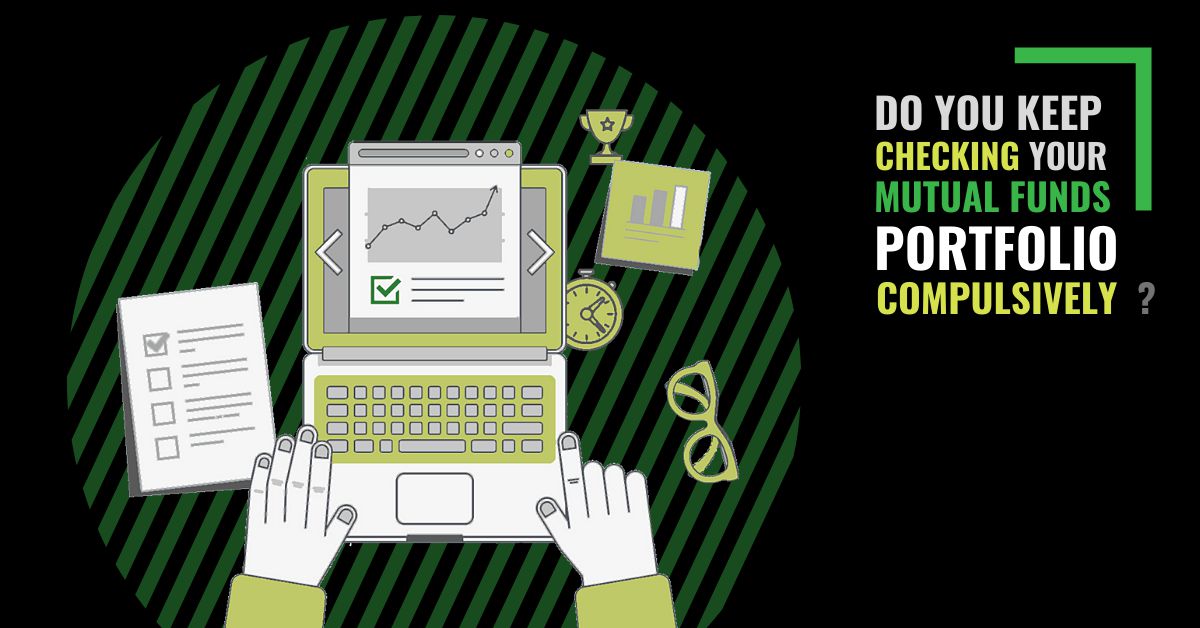How Often Should You Check and Review Your Portfolio?

Last Updated : June 17, 2020, 6:14 p.m.
After investing in mutual funds, we tend to get anxious and keep checking our portfolio frequently. This frequency can be once in a month for some people, while some check it every hour. We do it due to three reasons:
- To see if our investments are performing as per expectation
- Based on the information and news flow, some have a fear of things going wrong or missing out on opportunities, that apprehension makes them view their portfolio often.
- Checking mutual fund portfolios is the easiest among investment products, thanks to technology – you do not know yesterday’s price of your property since there is no daily price discovery, thus you cannot view it anywhere.
But should you be checking your portfolio every hour, every week, every month, or every year? Then what is the right frequency?
Top Mutual Funds to Invest in Now
Before we answer this question, it is important to note that in the first place we should invest prudently after taking into consideration important factors. These factors are return expectation, risk profile, age, time horizon of investment, investment goals and understanding of the asset class. Many of us invest basis advice or tips from our near and dear ones or someone we believe who understands the investment business.
We do not put in the effort to understand ourselves what we are getting into. This is quite unfortunate because when we buy insurance for our car or invest in real estate, we look at various parameters minutely, visit the site many times and look for the best deal. It is important that we spend some time understanding the asset class where we are putting our money. It does not mean you have to be an expert, but basic knowledge is vital. When we are armed with this knowledge, our frequency of checking our portfolio will also be right.
Once you have made the right investment decision, zeroed on the funds and invested, you should check your portfolio once in six months or a year. This should be enough; we say so because frequently viewing your portfolio could lead to irrational decisions. Let us explain with an example. Suppose you invested in three equity funds for the next 5 years to achieve your goal of buying a car. Equity investments are volatile in nature and the value keeps on moving up and down all the time. If you are looking at this portfolio hourly or daily, you might be tempted to act out of greed or fear. This action could be disastrous, there is a saying that “money in equities is made by waiting”. If you have invested correctly and are looking to do so for 10 years then why do you need to view it daily? If these three funds will be down 20%, fear will overtake and signal your mind to sell, or if it is up 30%, greed will tell you to invest more.
This is a natural phenomenon in every human being but success in investing depends on our behaviour more than skills or knowledge. Over a long period of time, there is not much difference in the best and the average performing fund. Even if you stick around in the average performing fund, you would do well. Once you are checking your portfolio every 6 months or a year, there could be factors that will warrant a deeper review and rebalancing of the portfolio. These are the factors one needs to keep in mind:
Fund Manager – If there is a change in the fund manager of the fund, you should analyze who is taking over that fund and discuss with your advisor the impact it would have on that fund. Every fund manager has his/her own style of managing funds and it could have a bearing on the performance of that fund.
Scheme Merger – Suppose you invested in scheme A which is a large-cap equity fund but after some time the mutual fund company merged it into scheme B which is a multi-cap fund. In this case, your initial objective of allocating to a large-cap fund is nullified, so you need to withdraw from that fund and invest in some other large-cap fund.
Closure of Fund – There can be instances when due to certain reasons a fund might be closing and returning money back to the investors. In this case, an advance communication is made by the mutual fund and you might have to make changes in your portfolio.
Fund Performance – Though 6 months or a year is a short time to review fund performance, there can be instances when a fund performs very badly. In this case, you need to understand the reasons for such a performance and take the necessary steps.
Conclusion
Checking and reviewing your portfolio can be injurious to your financial health. We recommend checking once or twice in a year and take the necessary steps to rebalance whenever necessary.

